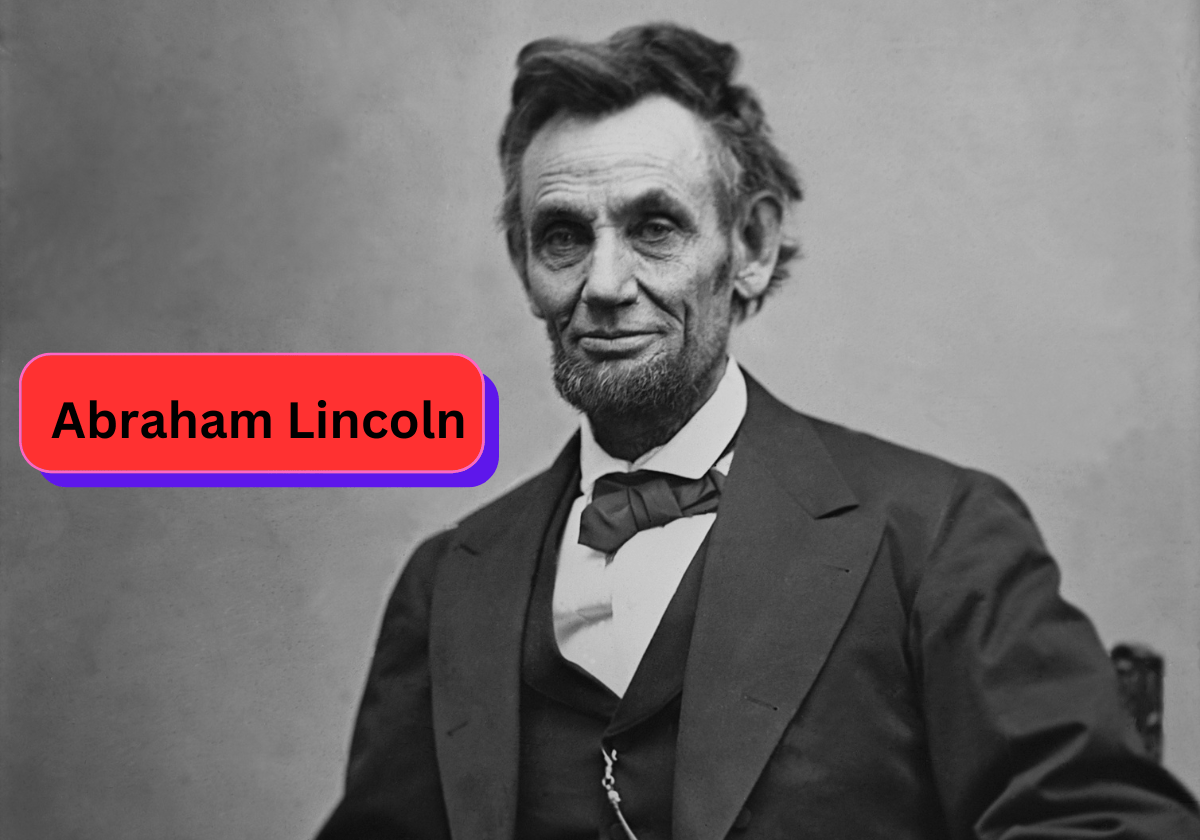Abraham Lincoln remains one of the most acclaimed presidents in American history. He was known for leading the country in the right direction by preserving the union and abolishing slavery, which garnered the praise he receives today. Lincoln’s life is rich with history, as he comes from humble beginnings, starting in a log cabin in Kentucky, and transforming his life into one of the most revered presidents in America. His journey was laden with barriers, but his determination to succeed led him to the White House.
Abraham Lincoln: Early Life and Education
Lincoln’s date of birth falls on the 12th of February, 1809. At the time, Hardin County (now known as LaRue County) was filled with log cabins. He was born to relatively poor parents, Thomas and Nancy Hanks Lincoln, who had a hard time making money and resolving their financial issues. Despite coming from a poor family, Lincoln was able to receive some education which transformed him into an individual who read voraciously. This love for reading helped him further his intellectual goals in life.
During his formative years, Lincoln engaged in various professions, such as rail-splitter, store clerk, and surveyor. Through these roles, he came in contact with the challenges that came with living on a frontier, which drove him to have a staunch work ethic. In the end, he did pursue a career in law after he was able to teach himself through reading legal books. Lincoln was gifted with great speech and critical thinking skills, which allowed him to flourish in his career as a lawyer in Springfield, Illinois.
Abraham Lincoln: Transition to Politics
Lincoln embarked on his political journey by participating in the Illinois state legislature between the years of 1834 and 1842. While being part of the Whig Party, he pushed for infrastructure development, economic policies, and stronger educational institutions. He was then elected into the U.S. House of Representatives in 1846, where he spoke against the Mexican-American War and the expansion of slavery.
When Lincoln took a break from political life, he returned after the controversial Kansas-Nebraska Act of 1854 that allowed slavery to be expanded into new territories. This gave rise to Lincoln as a leading voice against the expansion of slavery and he further helped establish the Republican Party which was set against the expansion of slavery. His debates with Stephen A. Douglas during the 1858 Illinois Senate race made Lincoln gain national recognition despite not winning the Senate seat.
Lincoln served as the 16th President of the United States in the year 1860, which is also when the Civil War broke out. His election led to the secession of several southern states thereby forming the Confederate States of America. Lincoln was tasked with the challenge of making sure the Union was not broken apart while trying to resolve the issue of slavery that kept dividing citizens.
Lincoln showed exceptional leadership abilities as well as strategic thinking throughout the Civil War. He delivered powerful speeches including the Gettysburg Address which were a testament to the commitment of the United States towards liberty and equality. His abolition of slavery proclamation on 1 January 1863 marked the turning point in the war where Lincoln made a name as the Great Emancipator.
Lincoln worked round the clock to achieve his ambition to reunite the nation despite significant backlash and political opponents. He fostered the talented Ulysses S. Grant and other military leaders and assisted the Union forces with staunch support. People respected him for his courage in facing political competition while adhering to his morals.
The 13th Amendment and the Reconstruction
In the ending of slavery, Lincoln worked day and night to ensure the introduction of the 13th Amendment to the US Constitution, which subsequently abolished slavery in the nation. After the war, his policies and teaching made it clear that the country needed healing, and he tirelessly preached the need for a soft reconstruction policy during the southern states to promote integration and foster national unity.
In his second inaugural address, Lincoln reinforced his need for reconciliation with the country when he said “With malice towards none, with charity for all.” For him, a united nation could only be achieved from forgiveness and mutual respect, and this indeed represents a leap in his belief in humanity.
Abraham Lincoln: Assassination and Legacy
His legacy and hard work manifested into a tragedy when John Wilkes Booth assassinated Lincoln on April 14, 1865, at Ford’s Theater in Washington DC. His death came as a shock to the nation, which was still grappling with the loss of a leader who guided the country through its darkest period.
Lincoln profoundly altered America with his vision of the country. He was a staunch advocate of equality, democracy, and justice for all people. His contributions to the nation are documented in monuments such as The Lincoln Memorial which is located in Washington, D.C.
Conclusion
Through the eyes of the citizens of the United States, Abraham Lincoln’s life and presidency symbolized the virtues of hard work, honesty, and leadership. Despite originating from humble beginnings, he has had a great impact on the nation. He serves as an inspiration to so many and his promise of freedom and unity helped alter America drastically. Because of all that he has done, he is a symbol of timeless hope and strength.

